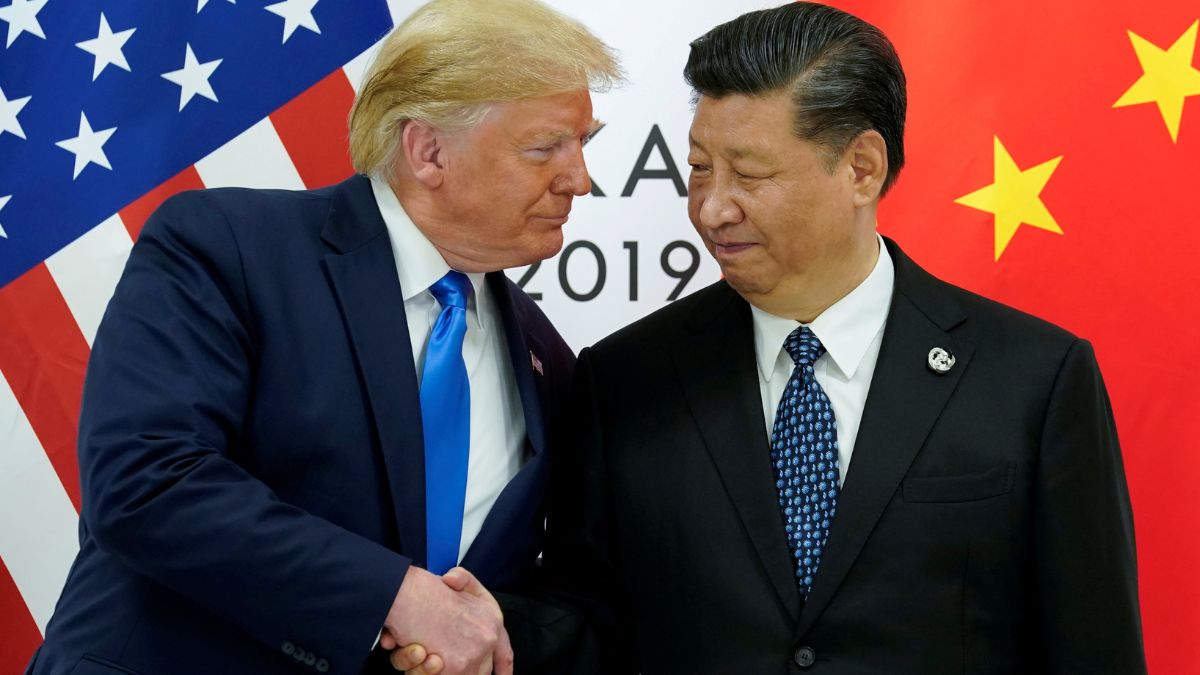In his first term as the president of the United States, Donald Trump changed the tone of how Washington would deal with China. He outrightly engaged in confrontation, launching a trade war and upending decades of policy.
However, things changed in his second term, when several China hawks in the United States feared that Trump was going soft on Beijing. The criticism is coming at a time when the Trump administration is pursuing a trade pact with America’s biggest economic and strategic rival in the world.
However, advocates of a tougher China policy fear that they are being sidelined within the administration and tech influence is growing in the White House instead, Bloomberg reported. That concern has grown more apparent as Trump looks towards a meeting with Chinese President Xi Jinping that’s expected in the coming weeks.
In the lead-up to this, China has already made a series of demands that would upend decades of American policy, including looser curbs on investment in exchange for more inflows, and eroding US support for Taiwan.
Trump is neglecting the Hawks’ concern
As per the report, behind closed doors, Trump has already shown he is willing to overrule the hawks’ concerns, including with a deal to ensure the survival of video-sharing app TikTok and plans to let Nvidia sell some of its artificial intelligence (AI) chips to China.
He went ahead to purge the National Security Council (NSC) of many advisers who advocated a tougher line towards China. He dismantled the council to such an extent that tech security experts are now worrying that no one is left in the body to push back against those who are seeking closer ties with Beijing.
“Beijing is in a sweet spot right now,” Matt Pottinger, who led the NSC’s work on China as deputy national security advisor in Trump’s first term, told Bloomberg. “The White House seems unaware that its TikTok policy and its weakening restrictions on chip exports are massive, unilateral concessions to the Chinese Communist Party (CCP)," he added.
Impact Shorts
More ShortsNot surprising
However, Trump’s recent change in stance should not be surprising since he had already shared his interest in trading with international actors like Russian President Vladimir Putin and North Korean Supreme Leader Kim Jong Un , who are usually shunned by the world. But when it comes to China, the stakes are much higher.
Trump used national security as a reason to impose high tariffs on countries around the world, including China. But during his first term, he also had a track record of rejecting efforts to block sales to China and lambasted aides for what he called the “fake term of national security”.
Trump’s dodging stance on China has also led to tensions within his inner circle. This became visible after Nvidia CEO Jensen Huang lashed out at China hard-liners in a podcast interview. According to Bloomberg, China hawks are concerned about the increasingly influential informal adviser to Trump on tech and China policy.
In the interview, Huang said that the hawks wear a “badge of shame” and are unpatriotic. His defenders later argued he was taken out of context.
The billionaire’s assertion prompted a response from avowed hawks like former Trump adviser Steve Bannon, who called for Huang’s arrest for being “an agent of influence of the Chinese Communist Party.” Joe Lonsdale, a Trump-supporting tech investor, posted that he was a proud China hawk and that “the CCP is an evil, murderous authoritarian regime”.
The White House cover-up
Amid the war between two factions, the White House insists that Trump remains tough on China and points to the steep tariffs he’s imposed on Chinese goods this year. The Trump administration argued that the American leader can balance both commercial interests and national security priorities – just as he can have both a tough China policy and a good relationship with Xi.
“As the president has said, he has a good relationship with President Xi, which he leans on to achieve better outcomes for Americans, such as a deal that saves TikTok for millions of American people and businesses without compromising our national security,” White House spokesperson Anna Kelly said amid criticism.
However, while prominent China sceptics like Secretary of State Marco Rubio and Vice-President JD Vance remain in the administration, most have gone quiet on China policy, focusing on other battles. “They are basically the same people who ran China policy before Trump changed the tone of China policy in 2015,” Derek Scissors, a self-proclaimed China hawk at the conservative American Enterprise Institute, told Bloomberg.
“And there’s an irony there, obviously, which is that Trump changed the tone of the conversation on China, and you see these people are now changing it back while he’s president.” Despite these changes, some hawks think that they can still win this strategic fight within the Trump administration.
“It’s appealing to believe that we can maximise profits and have zero security trade-offs,” Michael Sobolik, a China hawk at the Hudson Institute, a conservative think tank, told Bloomberg. “Usually, the Chinese Communist Party has a way of exposing the fallacy in the middle of that argument," he concluded.
)